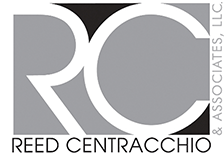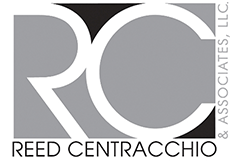
Child Custody Attorney in Chicago
Why Choose Reed, Centracchio & Associates, LLC for Child Custody Cases
Choosing a child custody attorney in Chicago is crucial for ensuring the best outcomes for your family. At Reed, Centracchio & Associates, LLC, we offer a holistic approach that considers the emotional, financial, and legal implications of child custody cases. Our dedicated team handles each case with personalized attention, ensuring that we tailor our strategies to meet the unique needs of each family. This personalized approach allows us to effectively represent your interests, supporting you every step of the way through the complex legal landscape of child custody.
Comprehensive Child Custody Support in Hinsdale, Cook County, DuPage County, Will County & Kane County
There is no issue as contentious or more likely to drain your emotions as a child custody battle (known in courts as an allocation of parental responsibilities). Before you begin, you need an objective assessment of your strengths and weaknesses. You need a family law team in Chicago that will provide honest advice and a thorough cost-benefit analysis. And you need a team that has the "know-how" to get you across the finish line.
At Reed, Centracchio & Associates, LLC, our Chicago child custody attorneys have a track record of turning challenging child custody cases into successes. Some of our most notable child custody achievements have started with clients accused and judged of misconduct. Yet, by listening to our clients, uncovering the truth, and crafting strategic plans, our child custody lawyers have transformed cases into victories where our clients regained custody.
Facing a Child Custody Challenge? Contact Our Family Law Firm for a Free Consultation with Our Child Custody Attorneys in Chicago!
Understanding Child Custody Determination in Illinois
Chicago courts no longer use the term "custody" but focus on these two categories:
1. Parenting Time, which refers to the child's day-to-day residence;
2. Allocation of Parental Responsibilities, which assigns authority to parents to make significant decisions regarding the child's education, religion, medical care, and extracurricular activities.
The right to have parental decision-making responsibilities can be awarded on a joint or sole basis.
You and your spouse have the right to determine child custody arrangements independently or through negotiation. This involves creating a parenting plan that outlines each parent’s custody rights and responsibilities. If you cannot agree on a plan, mediation may be ordered by the court to help you work out a plan with a certified mediator. When mediation fails, the matter will go to court, where a judge will make the final decision.
Types of Custody in Illinois
In Illinois, there are two primary types of custody: legal custody and physical custody. When parents separate or divorce, these custody arrangements determine their rights and responsibilities.
- Legal Custody: Legal custody refers to the authority to make significant decisions about a child's life, including education, healthcare, religion, and extracurricular activities. In Illinois, legal custody can be either joint or sole:
- Joint Legal Custody: Both parents share decision-making responsibilities, requiring cooperation and communication about important aspects of their child's upbringing.
- Sole Legal Custody: One parent has the exclusive right to make major decisions for the child. The other parent may still have visitation rights, but does not participate in critical decisions.
- Physical Custody: Physical custody determines where the child lives and the day-to-day care they receive. Like legal custody, physical custody can also be joint or sole:
- Joint Physical Custody: The child spends significant time living with both parents, though not necessarily an equal amount. Parents establish a schedule to share parenting time.
- Sole Physical Custody: The child resides primarily with one parent, known as the custodial parent. The non-custodial parent typically has visitation rights to spend time with the child according to a schedule.
- Combination of Custody Types:
- There are times when one parent is granted sole physical custody while the other is granted sole legal custody, or in other cases, one parent may be granted both sole physical and legal custody.
In Illinois, custody decisions are made based on the best interests of the child, considering factors such as the parents’ ability to cooperate, the child’s needs, and the parents’ living arrangements. Providing a stable and supportive environment for the child while fostering ongoing relationships with both parents is the goal of the courts. Illinois courts also strive to allocate parental responsibilities in a way that reflects the best outcomes for the child. Parents seeking guidance in navigating these decisions should consider legal counsel familiar with the intricacies of Illinois custody law and the specifics of local court practices.
Frequently Asked Questions
How Can I Prepare for a Child Custody Hearing in Chicago?
Preparing for a child custody hearing in Chicago involves several critical steps to ensure your case is presented effectively. First, gather all necessary documentation, including pertinent legal documents, records of correspondence with the other parent, and any evidence related to your child's well-being, such as school records and medical information. Organizing this data helps your attorney construct a compelling narrative to support your custody claims.
Next, familiarize yourself with local family court procedures in Chicago. Understanding what to expect can alleviate anxiety and improve your ability to respond effectively in court. Consult with your attorney to clarify any logistical concerns and practice your testimony to ensure clarity and poise. At Reed, Centracchio & Associates, LLC, our attorneys prioritize detailed case preparation, emphasizing effective communication throughout the process to bolster your confidence in legal proceedings.
What Factors Do Chicago Courts Consider Most Important in Custody Cases?
Chicago courts prioritize the child's best interests when determining custody, with essential considerations including the child's physical and emotional needs, the parents' ability to communicate and cooperate in decision-making, and the child's established living pattern. Additionally, the court will examine each parent's involvement in the child's life, including their capacity to provide care and support.
The child’s preferences, when age-appropriate, may also be considered, though they are not the sole determining factor. If domestic violence allegations exist, the court takes these very seriously and assesses their impact on the child's safety and well-being. Each case is unique, and Reed, Centracchio & Associates, LLC is committed to helping our clients understand these factors and strategically navigate them to achieve a favorable outcome.
How Do I Modify a Custody Agreement in Chicago?
Modifying a custody agreement in Chicago can be a complex process, requiring evidence of a substantial change in circumstances affecting the child's welfare. Common reasons for modification include changes in parental employment, relocation, or significant shifts in the child's needs. To initiate a modification, a parent must file a petition with the appropriate family court detailing these changes.
At Reed, Centracchio & Associates, LLC, our attorneys assist clients in preparing these petitions and guide them through each step of the modification process. We work closely with parents to gather supporting evidence and present compelling arguments that demonstrate why a modification serves the child's best interests. By maintaining open communication and a structured approach, we strive to facilitate the smoothest possible adjustment to existing custody arrangements.


Meet Our Team
We Can Handle Any Size Case, No Matter How Complex
-
 Bryan V. Reed Principal Attorney
Bryan V. Reed Principal Attorney -
 Nicole L. Centracchio Principal Attorney
Nicole L. Centracchio Principal Attorney -
 Ross S. Levey Partner
Ross S. Levey Partner -
 Clare McMahon Partner
Clare McMahon Partner -
 Jacalyn Birnbaum Of Counsel
Jacalyn Birnbaum Of Counsel -
 Gabrielle DiPrimio Senior Associate Attorney
Gabrielle DiPrimio Senior Associate Attorney -
 Chimene Granados Senior Associate Attorney
Chimene Granados Senior Associate Attorney -
 Caitlyn Dever Associate Attorney
Caitlyn Dever Associate Attorney -
 Cara Lindo Associate Attorney
Cara Lindo Associate Attorney -
 Lucas S. Godwin Associate Attorney
Lucas S. Godwin Associate Attorney













